Children between the ages of 2 and 6 go through a particularly fussy phase around vegetables called “neophobia”. You may notice that they start to refuse new foods, or even some foods they were previously happy to eat, particularly vegetables! Studies have shown that kids may need to try a vegetable as much as 10, or even 20 times, before deciding whether or not they like it. So whatever your child’s reaction to a particular veg today, don’t make a big deal of it. Just move on, and think about when is the next time you could offer your child that veg.
Re-offering also means the pressure isn’t on this one moment. When you know you can try again and again, and taste will change over time, it’s easier to remain positive and not pile any pressure onto yourself or your child for this one attempt. They didn’t like it this time? No problem, there’s always next time. And remember to highlight any positive parts of the process (perhaps they licked it or sniffed it or used descriptive language rather than “it’s gross”), and make sure to try to thread in rewarding, while also trying some of the veg yourself to link in role modelling.
How to do it:
If you are concerned about budget or food waste, offering small amounts and then adding it to your own dinner if it ends up uneaten might be enough (let them see you enjoy it to add some great role modelling, too!). But if you don’t want to buy a whole large veg or bag of veg when trying something new, frozen veg can be a real asset here! You’ll be able to grab just a small amount, and then the rest is ready for you to use a small amount next time, too, without having to buy anything again.
Be careful about the language used. Yet is a powerful word. If your child says “I don’t like it”, then try re-framing their attitude with the word yet or responses like: “you didn’t like them this time” or “you didn’t like carrots today, maybe next time we’ll try broccoli” or “you don’t like them cooked this way, perhaps next time we’ll try them raw/roasted/stir-fried”.



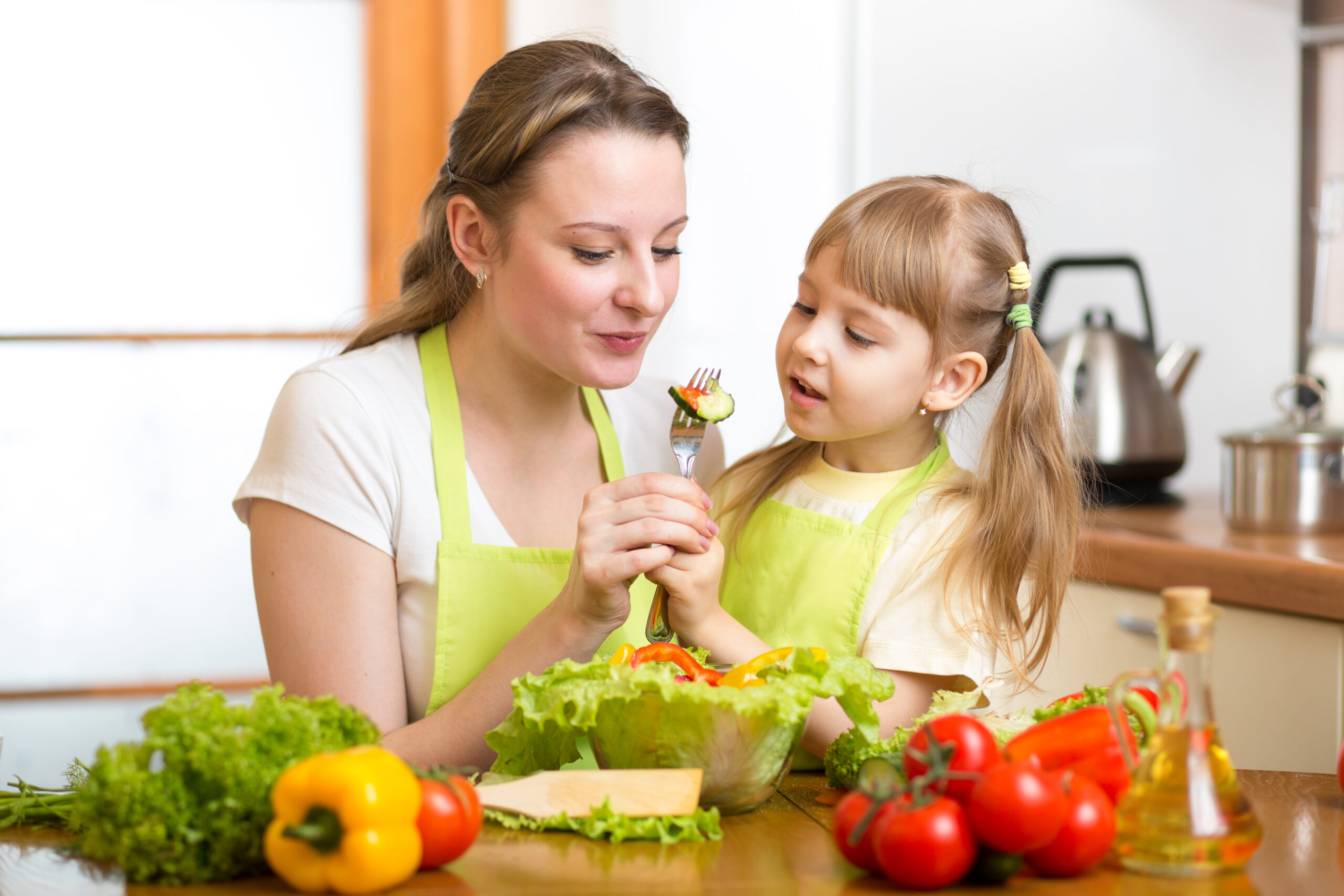


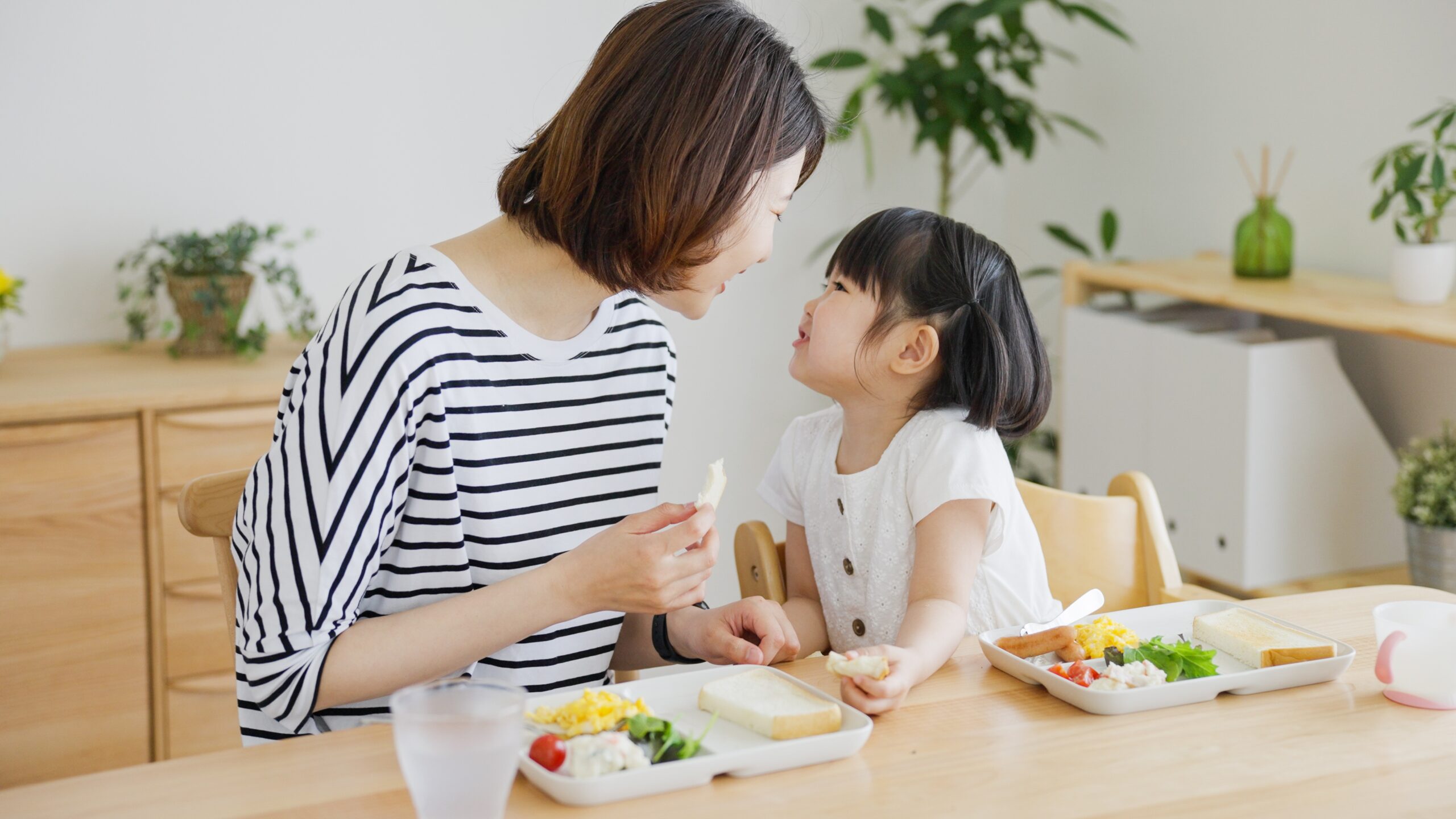

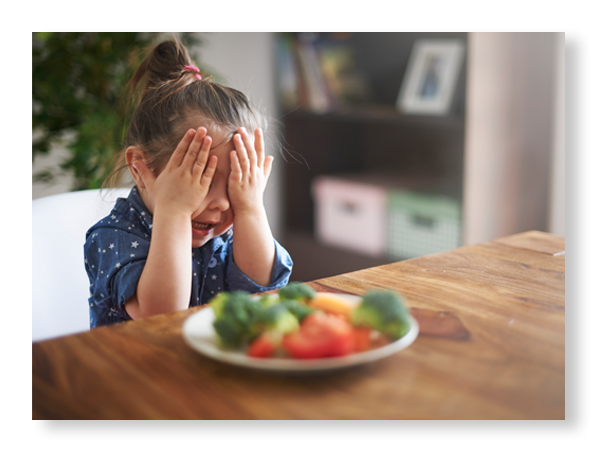
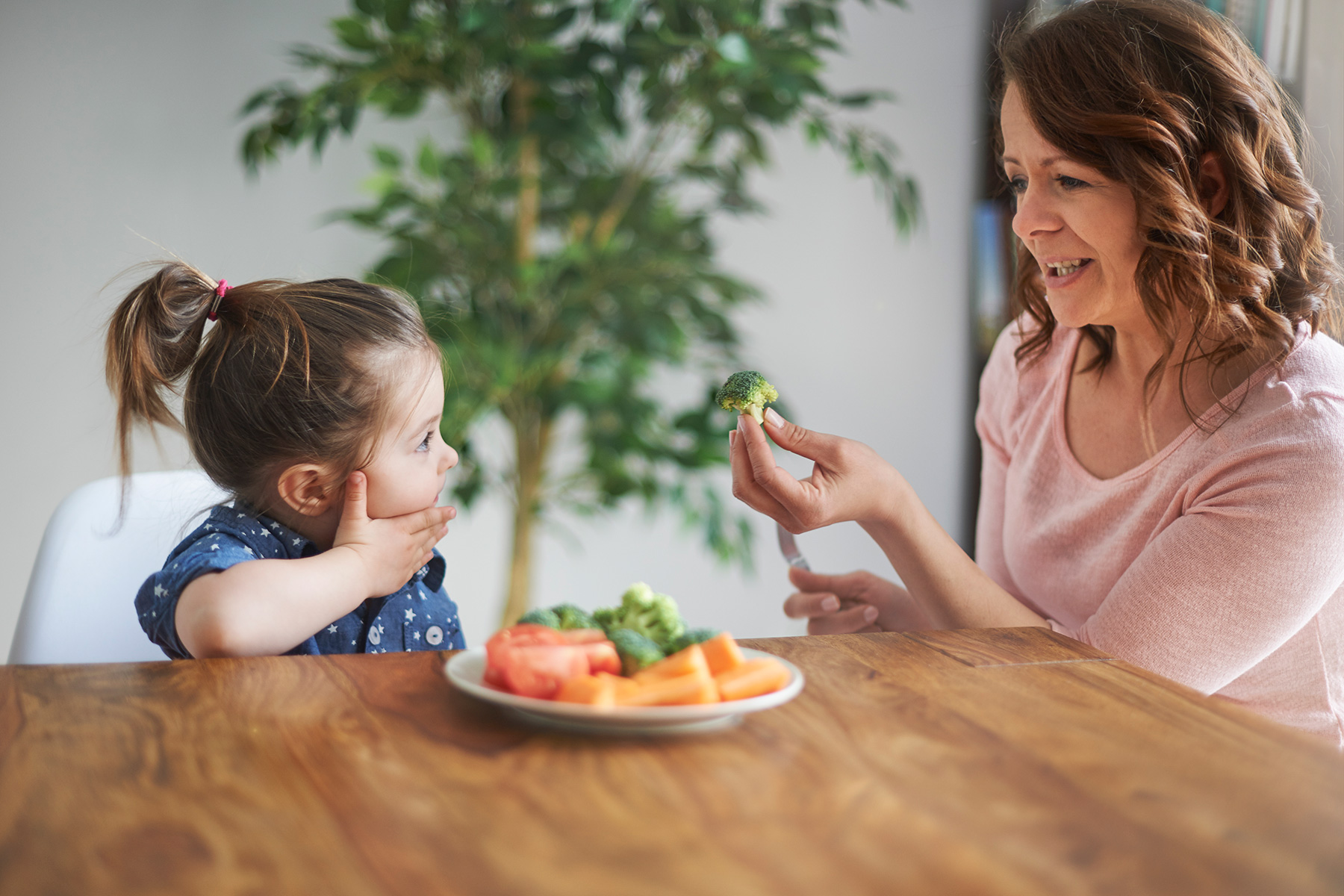

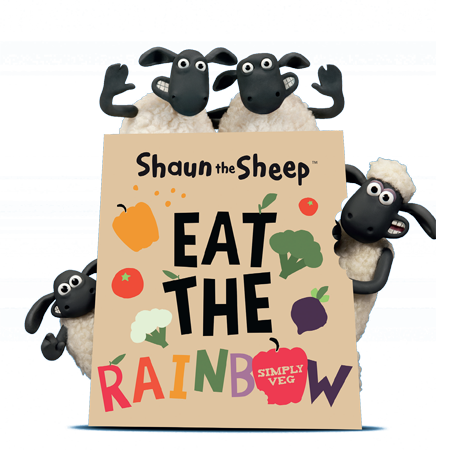


Follow Us on Social